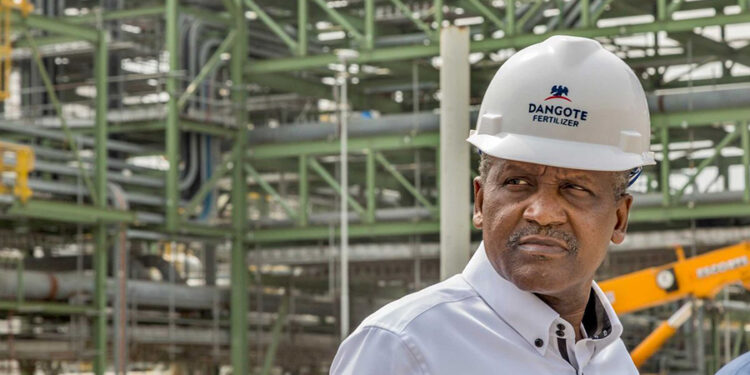The highly anticipated Dangote Refinery is gearing up to commence its diesel and jet fuel refining operations in October 2023, followed closely by petrol refining in November 2023. This exciting development was revealed by Devakumar Edwin, the Executive Director of the Dangote Group, during an interview with S&P Global Commodity Insights on September 18.
Edwin announced that the Dangote Refinery is on the verge of receiving its inaugural cargo of crude oil within the next two weeks, marking a significant milestone in its journey. Once the crude arrives, the refinery will kickstart its production, aiming to process up to an impressive 370,000 barrels per day of diesel and jet fuel starting from October 2023.
Additionally, the refinery is set to initiate a phased ramp-up to reach a remarkable daily production capacity of 650,000 barrels of petrol by November 30.
Edwin expressed his readiness, stating, “Right now, I’m ready to receive crude. We are just waiting for the first vessel. And so as soon as it comes in, we can start.”
Addressing a slight timeline adjustment, Edwin explained that the Nigerian National Petroleum Corporation Limited (NNPCL) had initially committed their crude to another party on a forward basis, causing a temporary delay in crude availability. However, he assured that this issue is temporary, and the refinery will exclusively run on Nigerian crude by November 2023.
Notably, the purchase of Nigerian crude will be conducted in US dollars, as the refinery operates within a free zone on the outskirts of Lagos. Nevertheless, NNPCL will supply some crude at reduced prices due to its equity stake in the venture.
Edwin emphasized the refinery’s versatility in processing various African crudes, with the exception of heavy Angolan grades, Middle Eastern Arab Light, and certain US light tight oils. He noted, “We can take even some of the Russian grades… if the global system opens up to allow us to receive them. Basically, if you look at our production profile, 50% of my production will meet 100% of the requirements of the country.”
As for surplus gasoline, which adheres to the 10 ppm sulfur Euro 5 quality standard, it will be exported to other African markets, the United States, and South America, albeit in relatively modest quantities. Jet fuel will find its way to Europe, while diesel will be distributed in sub-Saharan Africa.
Edwin emphasized the transformative impact of the Dangote Refinery on Nigeria. He highlighted that the facility would ensure a stable supply of “environmentally friendly” refined products and generate a substantial influx of foreign exchange into the country. Furthermore, the refinery is poised to alleviate the fuel supply challenges in import-dependent West Africa, where the removal of Nigeria’s fuel subsidy had led to a thriving illicit gasoline market due to price fluctuations.
In closing, Edwin stressed that the proceeds from the refinery’s operations would be reinvested in further ventures, reaffirming Aliko Dangote’s unwavering focus on Nigeria’s development.
The Dangote Refinery is poised to play a pivotal role in reshaping Nigeria’s energy landscape and bolstering its economic growth prospects.










